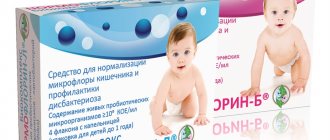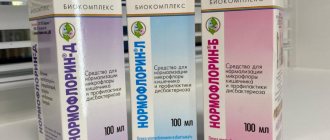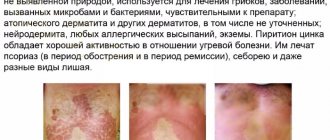Rinonorm spray naz doses 0.1% 20 ml x1
Rinonorm-Teva spray naz doses 0.1% 20 ml x1, ATX code: R01AA07 (Xylometazoline) Active substance: xylometazoline (xylometazoline) Rec.INN registered by WHO
Dosage forms
RINONORM
nasal spray dosage. (for children) 0.05% ml: fl. , with dosage device and nozzle for nose rings. No.: P N014799/02 dated 04/24/09 - Indefinitely
dosed nasal spray 0.1%: fl. with dosage device and nozzle for nose rings. No.: P N014799/01 dated 04/13/09 - Indefinitely
Release form, composition and packaging
Dosed nasal spray (for children) 0.05% in the form of a clear, colorless solution.
1 ml
xylometazoline hydrochloride 500 mcg
Excipients: citric acid monohydrate, sodium citrate dihydrate, glycerol 85%, water for injection.
Nasal spray dosed 0.1% in the form of a clear, colorless solution.
1 ml
xylometazoline hydrochloride 1 mg
Excipients: citric acid monohydrate, sodium citrate dihydrate, glycerol 85%, water for injection.
Clinical-pharmacological group: Vasoconstrictor drug for topical use in ENT practice Pharmaco-therapeutic group: Anticongestant - vasoconstrictor (alpha-adrenergic agonist)
pharmachologic effect
Alpha adrenergic agonist for local use in ENT practice.
When applied topically, xylometazoline causes constriction of arterioles, leading to a decrease in hyperemia and swelling of the mucous membranes of the nasopharynx and a decrease in secretion. A distinct local effect of the drug is detected within a few minutes and persists for several hours (up to 6-8 hours), manifesting itself in the restoration of patency of the nasal passages, sinus openings and Eustachian tubes. Restoring air patency of the nasopharynx improves the patient’s well-being and reduces the risk of possible complications caused by stagnation of mucous secretion.
Pharmacokinetics: When applied topically, xylometazoline is practically not absorbed, so plasma concentrations are very low (not analytically determined).
Indications
Rinonorm is used as symptomatic therapy for the following diseases and conditions:
- acute viral or bacterial rhinitis,
- acute allergic rhinitis,
- acute sinusitis or exacerbation of chronic sinusitis,
- acute otitis media (to reduce swelling of the mucous membrane of the Eustachian tube),
— preparing the patient for diagnostic procedures in the nasal passages.
ICD-10 codes
Dosage regimen
Adults and children over 10 years of age are prescribed Rinonorm nasal spray 0.1%, 1 dose (1 press on the piston device) in each nasal passage no more than 3 times a day.
Children aged 2 to 10 years are prescribed Rinonorm nasal spray for children 0.05%, 1 dose (1 press on the piston device) in each nasal passage no more than 3 times a day.
The maximum possible use of the drug is no more than 7 times a day. The interval between drug administration should not be less than 6 hours.
The amount of liquid entering the patient’s nasal passage (1 dose) is 0.14 ml of solution.
To avoid complications in the form of resumption of symptoms of the disease, the duration of continuous use of the drug should not exceed 7 days.
Before using the drug, you should clear the nasal passages of secretions. During administration of the drug, you should take a light breath through the nose.
Side effect
Local reactions: burning sensation and dryness of the nasal mucosa, rarely - irritation of the nasal mucosa, oral cavity and larynx.
From the side of the central nervous system: rarely - headache, extremely rarely (<1/10,000) - insomnia, increased excitability.
From the cardiovascular system: extremely rarely (<1/10,000) - arrhythmia, increased blood pressure.
Other: rarely - nausea, extremely rarely (<1/10,000) - skin reactions.
Contraindications for use
- atrophic (dry) rhinitis,
- angle-closure glaucoma,
- condition after hypophysectomy,
- simultaneous use of MAO inhibitors and tricyclic antidepressants,
- children under 2 years of age (for spray for children),
- children under 10 years of age (for adult spray),
- hypersensitivity to xylometazoline or other components of the drug.
The drug should be used with caution in patients with arterial hypertension, severe heart disease, hyperthyroidism, diabetes mellitus and patients taking bromocriptine.
Use during pregnancy and breastfeeding
The drug should not be taken during pregnancy.
The drug should be used with caution during breastfeeding.
Use in children
Children aged 2 to 10 years are prescribed Rinonorm nasal spray for children 0.05%, 1 dose (1 press on the piston device) in each nasal passage no more than 3 times a day.
Adults and children over 10 years of age are prescribed Rinonorm nasal spray 0.1%, 1 dose (1 press on the piston device) in each nasal passage no more than 3 times a day.
Contraindication: children under 2 years of age (for spray for children), children under 10 years of age (for spray for adults).
special instructions
Impact on the ability to drive vehicles and operate machinery
There was no effect on the ability to drive vehicles or control machines and mechanisms.
Overdose
Symptoms: in rare cases of overdose, occurring mainly in children, arrhythmia, increased blood pressure, and in some cases loss of consciousness may be observed.
Treatment: symptomatic therapy under supervision is indicated. In serious cases, non-selective alpha-blockers can be used to lower blood pressure, as well as intubation and mechanical ventilation. Vasoconstrictor drugs are contraindicated. If you accidentally ingest a moderate or large amount of the drug, you should take activated charcoal and a laxative (for example, sodium sulfate), and do a gastric lavage.
Drug interactions
Concomitant use of tri- or tetracyclic antidepressants may increase the systemic exposure of xylometazoline.
When taking the drug simultaneously with MAO inhibitors, there may be a risk of increased blood pressure.
Storage conditions and periods
The drug should be stored out of the reach of children at a temperature not exceeding 25°C. Shelf life - 3 years, after opening the bottle - 1 year.
Conditions for dispensing from pharmacies The drug is approved for use as an over-the-counter product.
on the use of a medicinal product for medical use RINONORM
Registration number:
P N014799/01 dated 04/13/2009
Tradename:
Rhinonorm
International Nonproprietary Name (INN):
Xylometazoline
Dosage form:
dosed nasal spray
Compound
100 ml of the drug contains: active substance: xylometazoline hydrochloride 0.100 g; excipients: benzalkonium chloride (in the form of a 50% solution) 0.040 g in terms of benzalkonium chloride 0.020 g, citric acid monohydrate 0.050 g, sodium citrate dihydrate 0.260 g, glycerol 85% 2.400 g, purified water up to 100 ml.
Description
Transparent colorless solution.
Pharmacological group:
anticongestive agent - alpha-adrenergic agonist.
ATX code:
R01AA07
Pharmachologic effect:
Xylometazoline is an alpha-adrenergic agonist used for topical use in ENT practice.
When applied topically, xylometazoline causes constriction of arterioles, which leads to a decrease in hyperemia and swelling of the mucous membranes of the nasopharynx and a decrease in secretion. A distinct local effect of the drug is detected within a few minutes and persists for several hours (up to 6–8 hours), manifesting itself in the restoration of patency of the nasal passages, sinus openings and eustachian tubes. Restoring the air patency of the nasopharynx improves the well-being of patients and reduces the risk of possible complications caused by stagnation of mucous secretions.
Pharmacokinetics:
When applied topically, xylometazoline is practically not absorbed, so the concentrations in the blood plasma are very small (not analytically determined).
Indications for use:
As a symptomatic treatment for the following diseases and conditions:
- - acute viral or bacterial rhinitis;
- - acute allergic rhinitis;
- - acute sinusitis or exacerbation of chronic sinusitis;
- - acute otitis media (to reduce swelling of the mucous membrane of the Eustachian tube);
- — preparing patients for diagnostic procedures in the nasal passages.
Contraindications:
- - hypersensitivity to xylometazoline or other components of the drug; - inflammation of the skin, nasal mucosa and crust formation (dry rhinitis);
- - use after hypophysectomy;
- - use in children under 10 years of age;
- - angle-closure glaucoma;
- - taking monoamine oxidase inhibitors (MAO) and tricyclic antidepressants.
Carefully:
Use with caution in patients with arterial hypertension, severe heart disease, hyperthyroidism, diabetes mellitus and taking bromocriptine.
Use during pregnancy and breastfeeding:
The drug should not be taken during pregnancy. Use with caution during breastfeeding.
Directions for use and doses
Adults and children over 10 years of age: 1 dose (one press on the piston device) in each nasal passage no more than 3 times a day (the maximum dose should not exceed 7 times a day). The interval between drug administration should not be less than 6 hours.
1 dose = 0.14 ml solution, 140 mcg.
To avoid complications in the form of resumption of symptoms of the disease, the duration of continuous use of the drug should not exceed 7 days.
Before using the drug Rinonorm, it is recommended to clear the nasal passage of secretions, and during the administration of the drug it is necessary to take a light breath through the nose.
For use in children from 2 to 10 years old, use the drug Rinonorm, dosed nasal spray [for children].
Side effect:
Sensation of burning and dryness of the nasal mucosa; in rare cases - irritation of the nasal mucosa, oral cavity and larynx, headache and nausea; extremely rare (<1/10000) - arrhythmia, increased blood pressure, increased excitability, skin reactions.
Overdose:
In rare cases of overdose, which occurs mainly in children, the following symptoms may be observed: irregular pulse, increased blood pressure, and in some cases, loss of consciousness. In case of overdose, symptomatic treatment under supervision is indicated.
In serious cases, non-selective alpha-blockers may be used to lower blood pressure, as well as intubation and mechanical ventilation. Vasoconstrictor drugs are contraindicated. If you accidentally take a moderate or large amount of the drug orally, you should take activated carbon (adsorbent) and sodium sulfate (laxative), and do a gastric lavage.
Interaction with other drugs:
Concomitant use of tri- or tetracyclic antidepressants may increase the systemic exposure of xylometazoline. When taking the drug simultaneously with monoamine oxidase inhibitors (MAOIs), there may be a risk of increased blood pressure.
Special instructions:
There was no effect on the ability to drive vehicles or control machines and mechanisms.
Release form
Nasal spray dosed 0.1%. 15 ml or 20 ml in a dark glass bottle with a dispensing device for spraying, a nozzle for the nose and a protective cap. 1 bottle along with instructions for use in a cardboard box.
Storage conditions:
Store at a temperature not exceeding 25°C. Keep out of the reach of children!
Best before date
2 years. Do not use after the expiration date.
Conditions for dispensing from pharmacies:
Available without a prescription.
Legal entity in whose name the RU was issued
Teva Pharmaceutical Enterprises Ltd., Israel.
Manufacturer
1. Merkle GmbH, Ludwig-Merkle-Strasse 3, 89143, Blaubeuren, Germany 2. Merkle GmbH, Graf-Arco-Strasse 3, 89079 Ulm, Germany
Organization receiving consumer complaints:
Teva LLC, 115054, Moscow, st. Valovaya, 35, tel., fax/36



